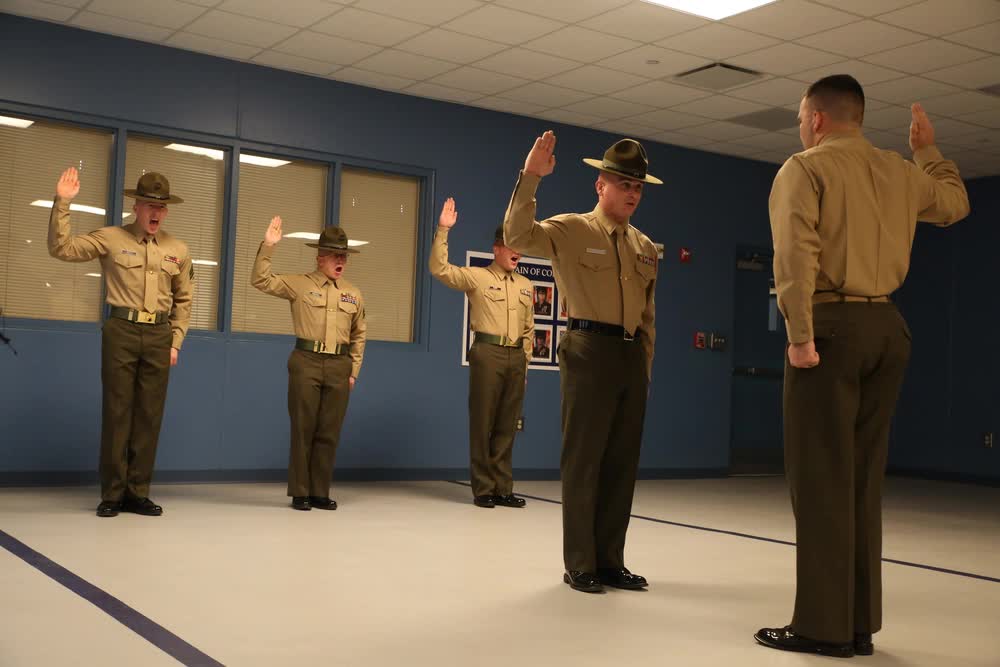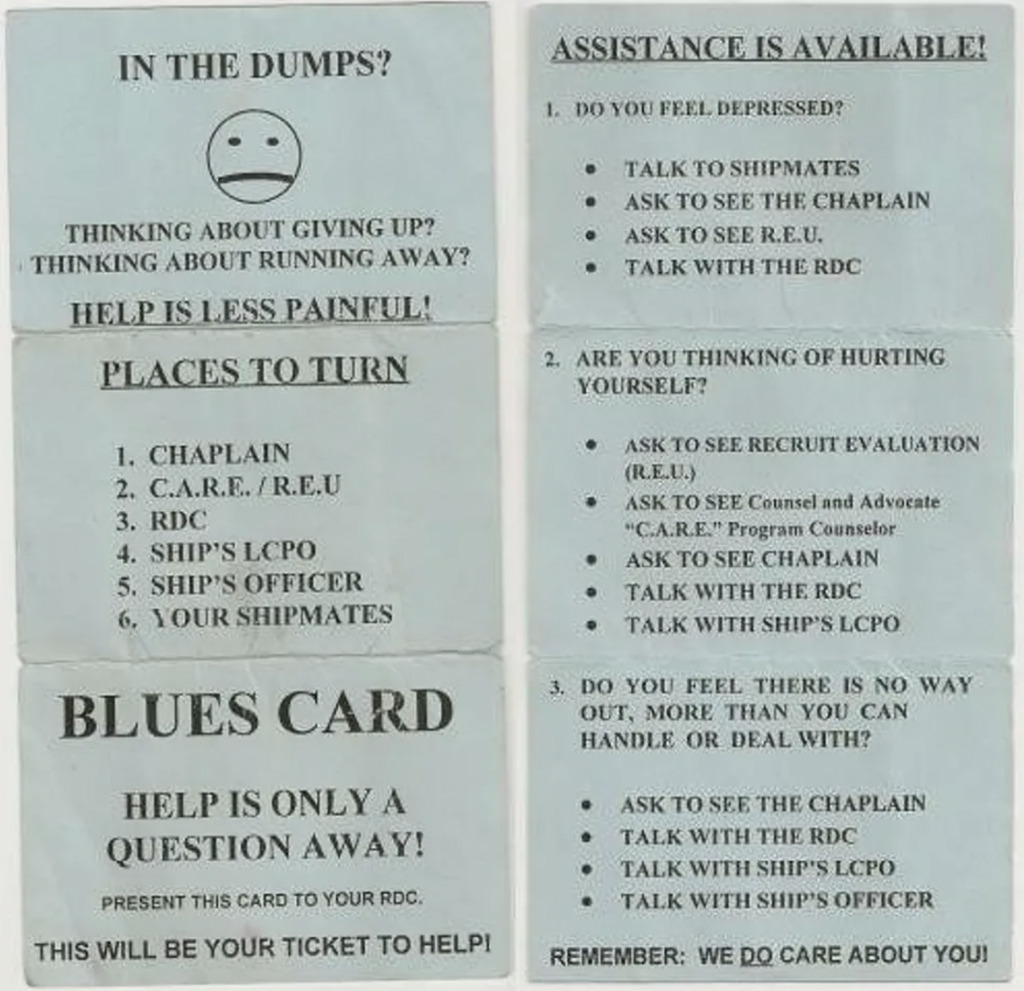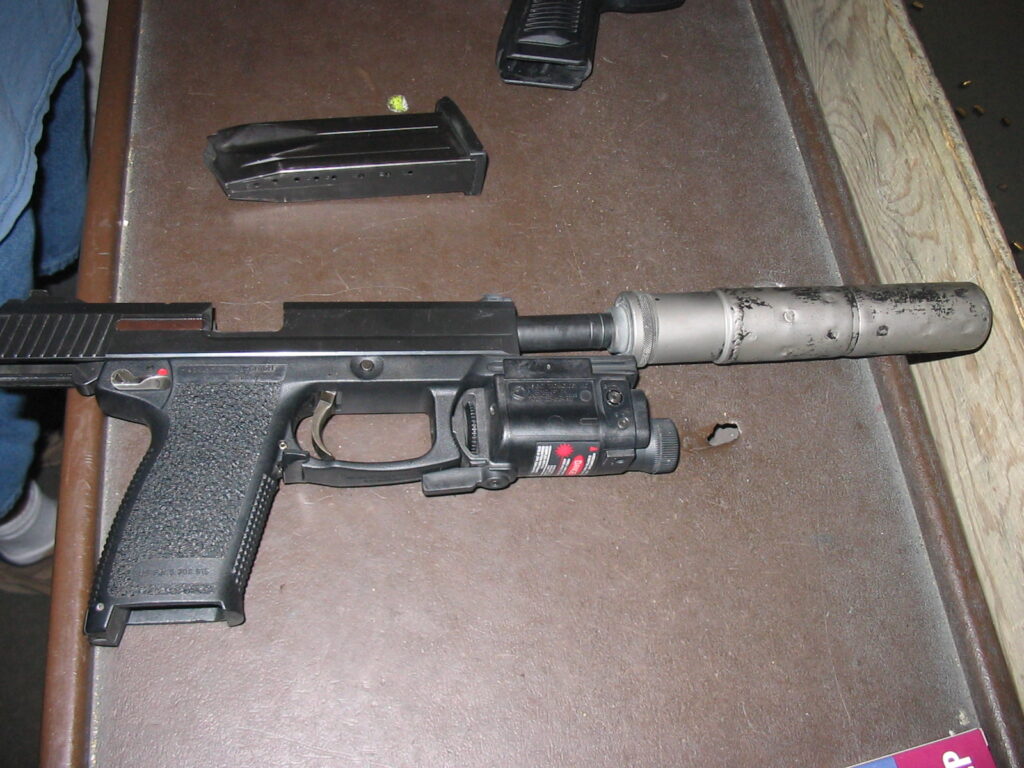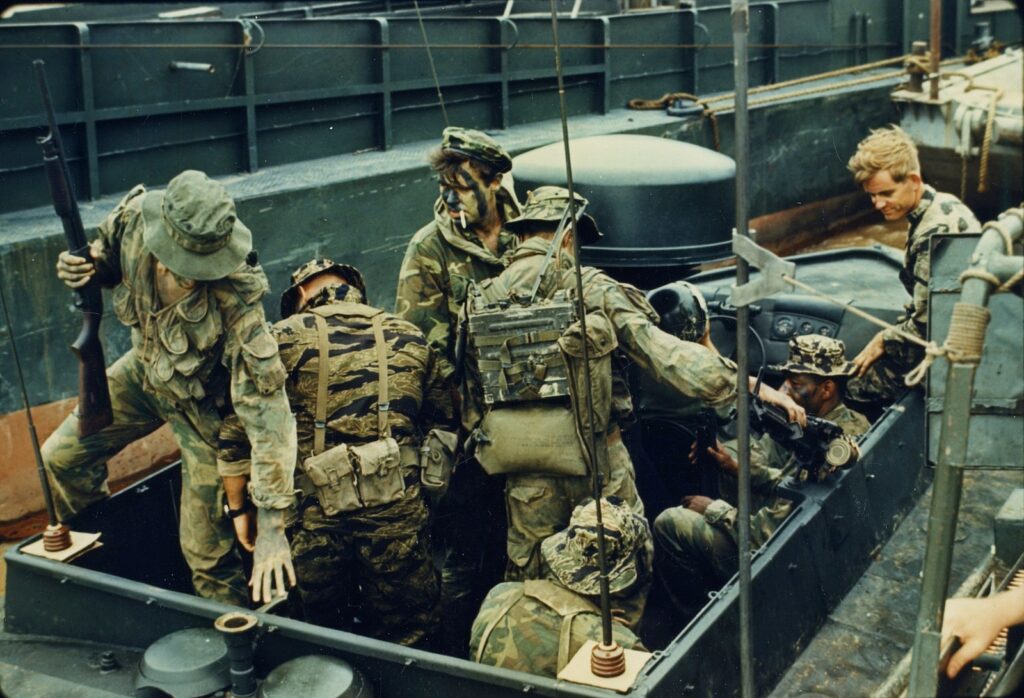Delving into the military urban legend of stress cards
- By Travis Pike
Share This Article

If you have spent any time in the military, you’ll likely have heard the myth of the stress card. One point of pride I’ve always had was that no one ever accused the Marine Corps boot camp of issuing stress cards. Although such cards never existed in the first place, at least this military urban legend never afflicted the Marine Corps.
The myth typically treats the stress card as a get-out-of-jail-free card for recruits. According to the myth, if you are feeling too stressed, you whip out the card, and the drill instructor or drill sergeant has to leave you alone and go about their day. You can halt any portion of training and just take a moment to yourself. This turns every recruit into a potential soccer referee throwing up yellow cards at will. Imagine DIs or DSs being bounced around like pinballs by stress cards.
Mentioning stress cards is often used to point out that military training is just too easy these days and the military has been wussified! Sometimes, it’s used as part of interservice rivalry. A Soldier might tell an Airman, “Your boot camp is so easy it has stress cards!” In reality, there has never been a magical card given to recruits to help them get out of trouble.
The origins of the myth and the Blues Card

It’s tough to say where the myth originated from, but it first appeared in the 1990s when two events provided great kindling to create what eventually became the stress card myth.
The first event was the integration of training for men and women in the Navy in 1992 and the Army in 1994. (The Air Force had integrated training in 1977, and the USMC is still working on it.) The 1990s was a time of change for the military, especially when it came to the various entry-level training stations in the United States. This gender integration led some – partly older veterans – to believe that boot camps would get easier and softer. You see, there is a habit of some older veterans telling younger veterans how much harder they had had it. It’s as predictable as death and taxes: the older guys always had it worse.
Second, in the 1990s, the Navy issued the Blues Card that was given to recruits to make them aware of the mental health resources available. This card provided a short list of resources and told recruits to seek help if they felt depressed or like hurting themselves. This was only done as a short-term experiment and was never a tool to get recruits out of training when they felt a little too stressed.
The reason the experiment was short-lived was that, supposedly, some recruit division commanders began reporting that recruits were trying to use the cards as a time-out pass. This didn’t work – and was likely a poor choice for those recruits.
As it stands, if a recruit feels like hurting themselves at any time, they will likely be removed from training to get help. However, no card is needed to do this and there is a very high likelihood the recruit will afterward be removed from military service through a fairly lengthy process.
Related: Boot camp advice: Keep a song in your heart
The truth about stress

Boot camp is all about stress. Do you think the instructors like yelling at you? Well, some probably do. However, it’s part of the job because it stresses you out. The more stress you face, the better stress inoculation you’ll have.
Boot camp creates a (mostly) safe environment for recruits to learn how to manage stress. That way, when they are on the battlefield, they are better mentally prepared to act under stress. Boot camp is the easiest part of most military careers. There, you’re guaranteed food, water, and sleep; no one is shooting at you; and ultimately, there are tons of precautions to keep you safe.
When you dive headfirst into the big-boy military, that changes completely: with the training wheels off, life can get awfully hard awfully fast. You might not sleep for days at a time, or maybe your security patrol turns into a two-day OP position where you know you have to make your peanut butter and crackers and Camelback last two days instead of eight hours, and now your squad leader is yelling at you because you didn’t bring a spare of AAs for your night vision.
If we took the stress out of boot camp, we might as well not even have boot camp. Without the stress, it could be done from home. So, with that in mind, if someone ever brings up stress cards, feel free to hit them with a “well actually” and let them know it’s nothing more than an urban myth.
Read more from Sandboxx News
- What’s all the ‘Hot Fuss’ about? The 20th anniversary of The Killers’ debut classic
- The special operations that paved the way for D-Day
- Video: America wants to use drone swarms to control the skies
- Martha Gellhorn: The only woman present on D-Day
- A former SEAL’s guide to mixing up your fitness routine
Related Posts
Sandboxx News Merch
-

‘AirPower’ Classic Hoodie
$46.00 – $48.00 Select options This product has multiple variants. The options may be chosen on the product page -

‘Sandboxx News’ Trucker Cap
$27.00 Select options This product has multiple variants. The options may be chosen on the product page -

F-35 ‘Lightning’ Framed Poster
$45.00 – $111.00 Select options This product has multiple variants. The options may be chosen on the product page

Travis Pike
Travis Pike is a former Marine Machine gunner who served with 2nd Bn 2nd Marines for 5 years. He deployed in 2009 to Afghanistan and again in 2011 with the 22nd MEU(SOC) during a record-setting 11 months at sea. He’s trained with the Romanian Army, the Spanish Marines, the Emirate Marines, and the Afghan National Army. He serves as an NRA certified pistol instructor and teaches concealed carry classes.
Related to: Military Affairs, Pop Culture

The HK MK23 built for SOCOM was the first and last offensive handgun

The slick custom shotgun carried by a Navy SEAL point man in Vietnam
Sandboxx News
-

‘Sandboxx News’ Trucker Cap
$27.00 Select options This product has multiple variants. The options may be chosen on the product page -

‘AirPower’ Classic Hoodie
$46.00 – $48.00 Select options This product has multiple variants. The options may be chosen on the product page -

‘AirPower’ Golf Rope Hat
$31.00 Select options This product has multiple variants. The options may be chosen on the product page -

‘Sandboxx News’ Dad Hat
$27.00 Select options This product has multiple variants. The options may be chosen on the product page
